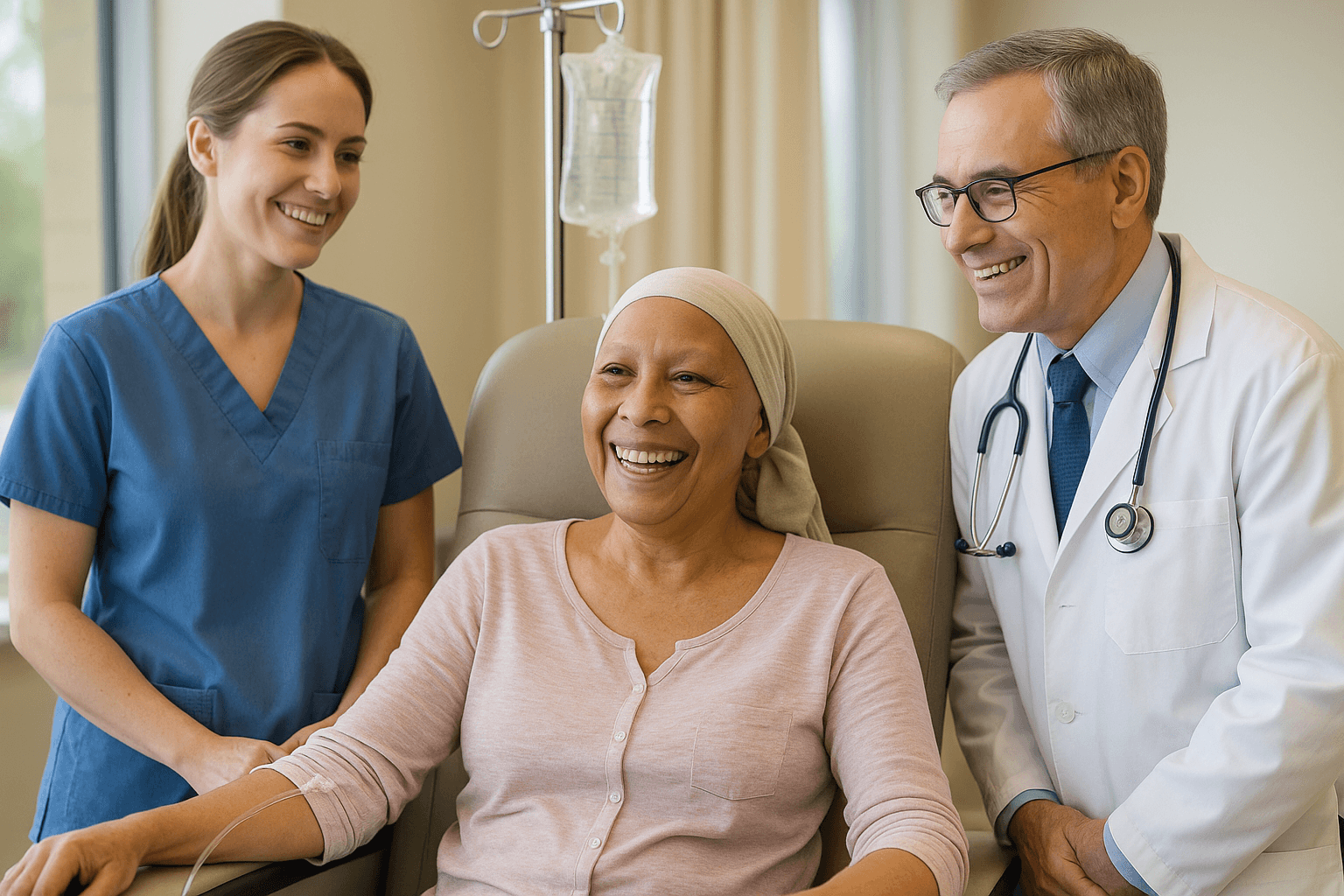
What Is Chemotherapy?
Chemotherapy stands as a prevalent approach in the treatment of cancer, employing drugs to eliminate cancer cells and impede tumor development. Often combined with complementary treatments like radiation therapy or surgery, chemotherapy is most commonly administered intravenously, directly into the bloodstream. Other routes of administering chemotherapy are intramuscular, intraperitoneal, intravesical, intraarterial etc. While acknowledged for its effectiveness, it is essential to note that chemotherapy may bring about side effects.
Chemotherapy, often referred to as "chemo," represents a category of cancer treatment utilizing drugs to combat various forms of cancer. In addition to chemotherapy, there are alternative drug therapies, such as hormone therapy, which inhibits cancers from accessing essential growth hormones; immunotherapy, boosting the immune system to combat cancer; and targeted therapy, altering the multiplication and behavior of cancer cells.
The coordination and oversight of these treatments typically fall under the purview of a medical oncologist, a specialist well-versed in chemotherapy and other anti-cancer medications. It is common for chemotherapy to be combined with surgical interventions or radiation therapy as part of a comprehensive approach to treating cancer.
How does chemotherapy work?
Chemotherapy is a powerful and widely used treatment for cancer, working by targeting and destroying rapidly dividing cells, including cancer cells. Here's a simplified explanation of how chemotherapy works:
-
Cellular Disruption:
Chemotherapy drugs interfere with the cell division process, disrupting the growth and division of rapidly multiplying cells. Cancer cells divide more quickly than normal cells and are particularly vulnerable to these drugs.
-
Cell Cycle Specific vs. Non-Specific Drugs:
Chemotherapy drugs can be categorized into cell cycle-specific and cell cycle non-specific drugs. Cell cycle-specific drugs target cells at specific phases, while cell cycle non-specific drugs act throughout the cycle. Combining these drugs aims to eliminate cancer cells at various stages of division.
-
DNA Damage:
Some chemotherapy drugs induce damage to the DNA of cancer cells. This prevents the cells from replicating correctly, leading to their destruction. Healthy cells can also be affected, but they often can repair the damage more efficiently than cancer cells.
-
Impact on Rapidly Dividing Cells:
Cancer cells divide more rapidly than most normal cells in the body. By targeting quickly dividing cells, chemotherapy aims to selectively destroy cancerous tissue. However, this also affects other fast-growing cells, such as hair follicles and cells lining the digestive tract, leading to common side effects like hair loss and gastrointestinal issues.
-
Systemic Treatment:
Chemotherapy is typically administered systemically, circulating throughout the bloodstream to reach cancer cells anywhere in the body. This makes it effective against cancer that has spread (metastasized) to other organs.
-
Combination Therapies:
Multiple chemotherapy drugs are often used in combination or as part of a broader treatment plan. Combinations can enhance effectiveness and reduce the likelihood of cancer cells developing resistance to a single drug.
-
Adjunct to Other Treatments:
Chemotherapy is frequently used in conjunction with other cancer treatments, such as surgery or radiation therapy. This combination approach aims to maximize the chances of eradicating cancer cells and preventing their recurrence.
Which types of cancer can chemotherapy treat?
-
Leukemia:
Chemotherapy is commonly used to treat leukemia, a blood and bone marrow cancer where abnormal white blood cells multiply rapidly.
-
Lymphoma:
Both Hodgkin's lymphoma and non-Hodgkin's lymphoma can be treated with chemotherapy. These cancers affect the lymphatic system, a vital part of the immune system.
-
Breast Cancer:
Chemotherapy is often a component of the treatment plan for breast cancer, targeting cancer cells in the breast tissue.
-
Lung Cancer:
Chemotherapy may be used for both small cell lung cancer (SCLC) and non-small cell lung cancer (NSCLC), either alone or in combination with other treatments.
-
Colorectal Cancer & Other Gastrointestinal Cancers:
Chemotherapy is employed in the treatment of colorectal cancer, including cancers of the colon and rectum and other gastrointestinal cancers like esophageal cancer and stomach cancer.
-
Ovarian Cancer:
Chemotherapy may be recommended for ovarian cancer, targeting rapidly dividing cancer cells in the ovaries.
-
Prostate Cancer:
While prostate cancer is often treated with surgery or radiation therapy, chemotherapy may be considered in some instances, mainly when the cancer has spread beyond the prostate.
-
Hepatobiliary & Pancreatic Cancer:
Chemotherapy is used in the treatment of cholangiocarcinoma, gallbladder cancer, and pancreatic cancer, which are often diagnosed at an advanced stage.
-
Uterine (Endometrial) Cancer:
Chemotherapy may be part of the treatment plan for uterine cancer, mainly if the cancer has spread beyond the uterus.
-
Bladder Cancer:
Chemotherapy is sometimes used as part of the treatment approach for bladder cancer, especially in cases where the tumor has infiltrated the muscle wall of the bladder.
-
Testicular Cancer:
Testicular cancer is highly responsive to chemotherapy, and it is often a crucial component of the treatment plan.
-
Cervical Cancer:
Chemotherapy is given along with radiation therapy for better results and is also useful in the management of advanced cervical cancer.
It's important to note that the use of chemotherapy can vary based on individual cases, and treatment plans are often customized to address the specific characteristics of each patient's cancer. Additionally, advancements in medical research and cancer treatment continue to expand the range of cancers that may be effectively treated with chemotherapy. Always consult healthcare professionals for personalized advice and information tailored to specific circumstances.
Google rating score:5.0 of 5, based on 47 reviews
;







